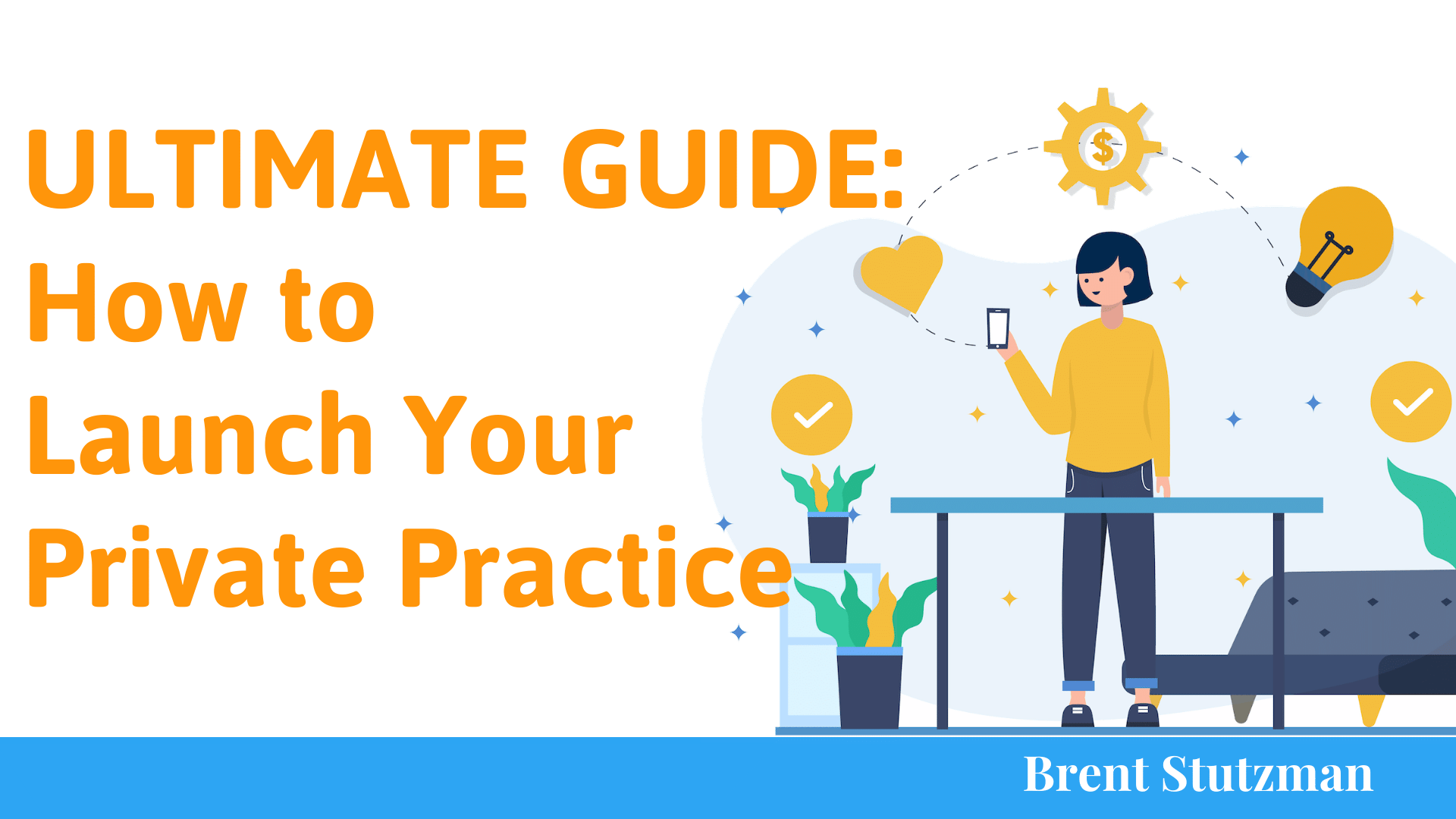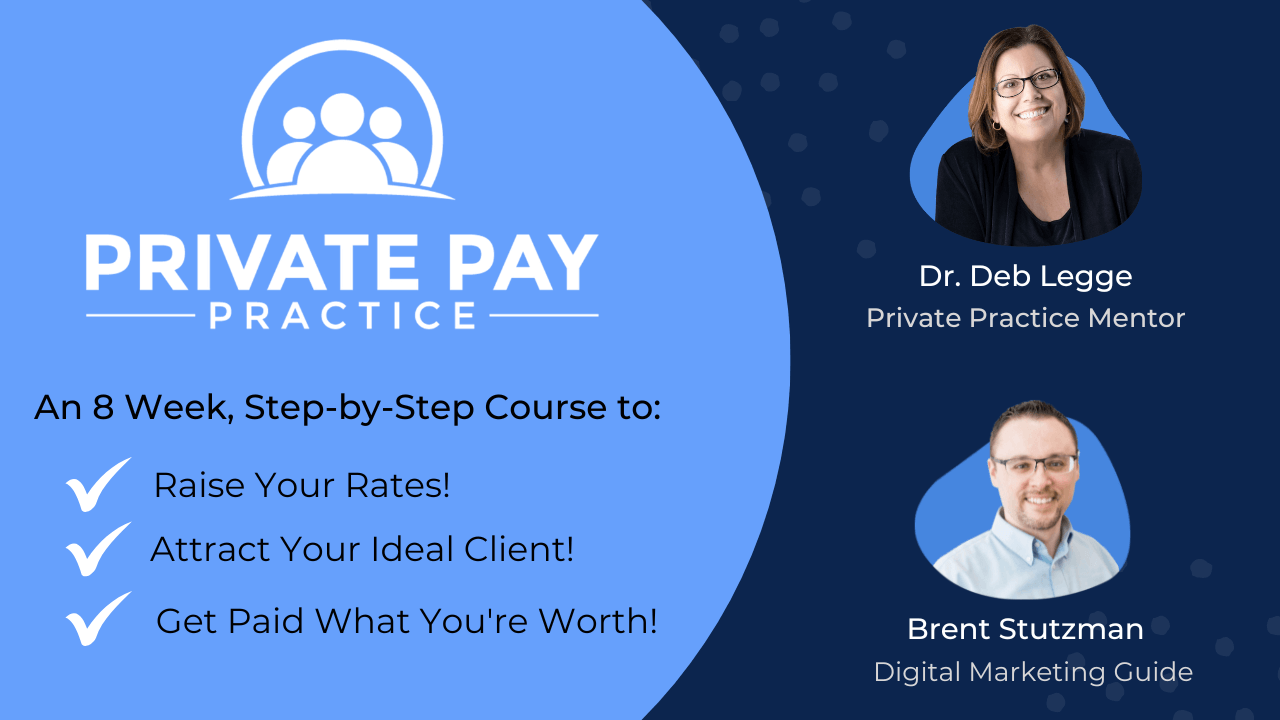If you don’t want your private practice to become a soul-sucking agency where your clinicians feel like they’re just robots and then leave your practice after one year, then you need to keep reading.
Running a successful private practice is more than increasing revenue. It really comes down to nurturing and navigation relationships.
If you don’t get this right, you’re going to hate being a business owner and no one will want to work with you.
My wife and I were at a marriage retreat recently and there were 3 big take-aways that I thought fit perfectly in running a business.
——
To get one thing clear, we didn’t go to a marriage retreat because our marriage was in trouble. We went to a marriage retreat to strengthen our marriage.
It’s kind of like getting a tune-up for your car. If you want your car to run at its optimum efficiency , then you get tune-ups.
The first thing I learned at this marriage retreat was this:
1. “Commending Your Spouse in Front of Others.” There are a lot of spouses who just talk behind their partner’s back- they just mock them, and put them down. Whether it’s at a party or at the bar after work. You know what I’m talking about.
Well, at the retreat, the leader said how important it was for spouses to commend each other in front of others. Commending is giving witness, in front of people, to their hard work in being a partner or a parent.
How does this relate to running a private practice? Now, as a leader, how often are you commending the work of your staff, clinicians, or employees in front of others? It’s important to do in private, but how much more so when other people are around.
Now, don’t get in the habit of showing favorites, but imagine how that would change your workplace if you spend time thinking through how to commend the work of individuals and teams in front of others?
—-
2. The second thing I learned was to set-up a hard conversation. If you’re married, then you will have hard conversations with your partner.
If you’re going to be the boss, then you’re going have hard conversations with your staff. So, do you know how to SET UP those conversations?
There’s nothing worse than being blind-sided by a conversation that’s loaded with conflict.
It’s important to set the table for conflict and one of the ways you do that is creating a common vocabulary for when a difficult conversation needs to take place. One suggestion for this was, “I need you to meet me at the line.”
Now, “meet at the line” is a verbal que where both parties will create a shared space they can hold a difficult conversation. This shared space also has some ground rules which are already known by the two parties.
Mostly, it’s a space where you won’t tear into the other person and rip them to shreds, but a space where you’ll be curious about misunderstandings, explore hurt feelings, and find a way forward.
As a boss, you need to provide training to your staff on how to have these conversations so when someone asks, “I need you to meet met at the line” everyone knows what to do next.
3. The third take away from the marriage retreat is the idea of Allies & Confidants. Where can you go to find helpful, accountable relationships?
According to Leadership on the Line, by Ron Heifetz & Marty Linsky, they write that allies are “people who share many of your values, or at least your strategy,… they cannot always be loyal to you; they have other ties to honor.”
For the most part, allies are the people who work for you. They share you values and probably a strategy to accomplish the mission of your private practice, but at the end of the day, they are not loyal to you. And that’s okay. Allies are important for you to accomplish your mission.
If you want to grow loyalty then work on the first two items I mentioned in this post already.
Confidants, on the other hand, “have few, if any, conflicting loyalties. They usually operate outside your organization’s boundary, although occasionally someone very close in, whose interests are perfectly aligned with yours, can also play that role.”
Most business owners will struggle to find confidants. If you’re married, then you already have at least one confidant (at least, I hope that’s the case).
But, who do you have in your life that you would consider a confidant?
Confidants will help you GROW as a leader because they will be loyal to you no matter what you say or how bad you mess up. They will be honest to your face. They will meet you at the line if necessary and they accept you unconditionally.
They probably don’t work for you, but you have a lot of strong, overlapping interests.
The one mistake that I see business owners make all the time is that they will try to turn allies into confidants. They will take an employee, who is an ally, and try to make them a confidant. It makes for a weird power imbalance.
This is how it typically goes: In order to gain an ally’s loyalty, business owners will often overshare information or to be too vulnerable with an employee which puts that employee in an awkward position.
Then the business owner then believes the employee is a confidant but is crushed when that employee leaves.
Remember, allies may have shared interests, but they are not loyal… and that’s okay. Just don’t try to make confidants out of allies.
So how are you building up relationships in your private practice and outside your private practice? Is your private practice a place where hard conversations and commending take place?
If you’d like some support in this area, reach out to me through email for some coaching. I can help.




